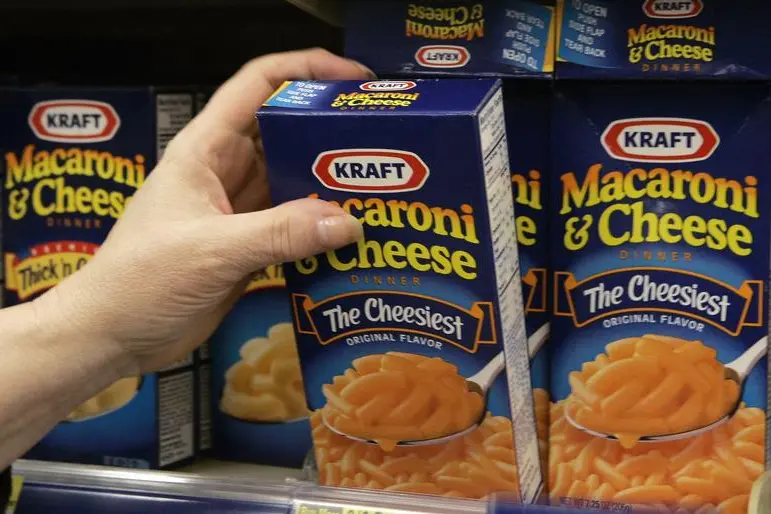PHOTO
PARIS - Kraft Heinz shares reached their zenith two years ago, the day Unilever, rejected an unwanted takeover approach from the aggressive maker of ketchup and processed cheese. Its Anglo-Dutch quarry’s stock also got a boost. How the tables have turned. The Cheez Whiz giant has melted down since offering to buy Unilever: its $40 billion market value is now just a quarter of its erstwhile prey’s. Unilever, meantime, has blossomed into a $155 billion behemoth.
The Kraft-Unilever merger dance was a short one – lasting one long weekend in February 2017. But it unlocked a broader debate about the appropriate model for a modern corporation. Is the role of the company, as the monetarist Milton Friedman argued decades ago, solely to produce profit, and pay dividends, to shareholders? Or must it consider other constituents, like workers, the communities in which it operates and the environment – as well as stock owners?
The divergent fortunes of Kraft and Unilever since their dalliance would suggest the Friedman view embraced by Kraft’s top owners is outdated, and the more expansive one, which undergirded Unilever’s lightning defense against Kraft’s bid, is ascendant. But in that brief interlude when Unilever was forced to weigh all its strategic options, one that emerged is what investment bankers call a “Pac-Man defense,” where a takeover target flips the script and bids for its would-be acquirer.
Chicago-based Kraft is a shell of its former financial self. The rent-seeking, dividend-paying model of its overlords at Brazilian investment group 3G, with an assist from Warren Buffett’s investment company Berkshire Hathaway BRKa.N, appears to be in tatters. What better way for Unilever to show the world that its more inclusive form of capitalism is dominant than to pounce on Kraft, revive the business and make a fortune for shareholders all at once?
Unilever can afford to swallow the much-diminished Kraft, led by 3G partner Bernardo Hees. In a straight takeover, rather than a merger like the one Kraft sort-of proposed two years ago, Unilever would also be in a prime position to call the shots, and export its culture and management approach – one where growth is not sacrificed at the altar of cost savings. Nonetheless, there would be copious synergies to harvest from combining overlapping functions, from corporate overheads to global procurement.
Consider the arithmetic of a hypothetical Unilever bid mimicking Kraft’s from two years ago. At a 20 percent premium to current market prices, a bit more than the markup Kraft offered, a deal would cost Unilever about $48 billion. At the same ratio of cash and stock as Kraft had proposed, that would leave Unilever needing to hustle up $29 billion in cash. That would take the debt load of the combined group close to a punchy $80 billion, or more than four times EBITDA for this year, according to I/B/E/S estimates from Refinitiv. But with as much as $4 billion worth of cost savings potentially achievable, the ratio might drop to below 3.5 times EBITDA.
And there are other ways to reduce indebtedness. Buffett might be persuaded to take only equity. Perhaps even 3G could do the same. Together they own 49 percent of Kraft. That would bring debt to well below three times EBITDA. And then there are potential disposals of parts of Kraft. Unilever, for instance, might want to focus on its Hellmann’s mayonnaise and jettison Kraft’s Miracle Whip. Or it might sell its Maille brand of Dijon mustard to focus on Kraft’s Grey Poupon, and so on and so forth.
Which gets to the reason Unilever would probably decide against a bid: Kraft’s portfolio. Many Kraft brands – think Velveeta, Oscar Mayer and Jell-O - give off a bouquet of flavor attributes that might best be described as over-processed, under-nourishing and ultra-long shelf-life. Revenue excluding rebates and returns at Kraft rose just 0.8 percent in 2018.
Unilever has some more appealing food brands, for sure, like Ben & Jerry’s and Magnum ice creams. And its consolidated underlying sales growth, adjusted for the divestiture of its margarine-spreads business, came to 3.1 percent for 2018. But the victuals line’s growth, at 2 percent, lagged beauty and personal care, at 3.1 percent; and home care, which grew 4.2 percent. Even if Unilever could get Kraft’s food businesses to grow at the same rate as its own, a deal would drag down the overall top line. All of which raises the question of why Unilever is in the edibles business at all.
That’s a matter the company’s new chief executive, Alan Jope, will need to address when he takes over at May’s annual meeting. While the Scotsman looks as if he might enjoy a Magnum or two, he ascends to the top job after running the bigger arm that includes Dove soap and Axe body wash. Snagging Kraft, while it’s cheap, might make a nice prelude to splitting the whole food complex off down the road.
CONTEXT NEWS
- Kraft Heinz shares fell 32 percent in the nine trading days following Feb. 21, when it reported a $15.4 billion writedown and said it had been subpoenaed by the U.S. Securities and Exchange Commission over some of its accounting policies.
- Kraft proposed taking over Unilever in 2017, a bid the Anglo-Dutch group rejected.
(Editing by John Foley and Martin Langfield)
(( rob.cox@thomsonreuters.com ; Reuters Messaging: rob.cox.thomsonreuters.com@reuters.net ))
© Reuters News 2019





















